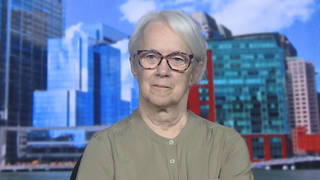
Topics
President Bush’s military order authorized two weeks ago, to try suspected terrorists in secret in military courts, has raised widespread concern about civil liberties. The military tribunals are the boldest initiative in a series of laws and rewritten federal regulations that, taken together, have created an alternate system of justice in the aftermath of Sept. 11, giving the government far greater power to detain, investigate and prosecute people suspected of involvement in terrorism. The order has few specific details, among them that only “non-citizens” could qualify, that they can keep secret evidence from defendants, can convict suspects and impose the death penalty with a two-thirds vote.
Bush’s order does say the trial must be “full and fair.” It says that two-thirds of the military commission “present at the time of the vote” must agree on a conviction or a sentence of a suspected terrorist. It allows penalties up to and including the death penalty. It grants the last word on a verdict or a sentence to the president or the Secretary of Defense.
The vaguely written order has alarmed civil libertarians and even conservative columnist William Safire, who called it a “replacement of the American rule of law with military kangaroo courts.” The American Civil Liberties Union issued a statement condemning the tribunals—saying the prosecutions of the 1993 World Trade Center bombers and Oklahoma City bomber Timothy McVeigh demonstrate that the government has managed to protect the safety and identity of jurors while achieving convictions in terrorism cases.
Tomorrow, Senate Judiciary Committee Chairman Patrick Leahy will hold hearings on the executive order that allows for military trials of suspected terrorists and their helpers. Democrats on the Hill say they are concerned that the tribunals will allow unusual shortcuts and limited appeal rights.
A piece that ran in the Washington Post several weeks ago begins: ”FBI and Justice Department investigatorsareincreasingly frustrated by the silence of jailed suspected associates of Osama bin Laden’s al Qaeda network, and some are beginning to that say that traditional civil liberties may have to be cast aside if they are to extract information about the Sept. 11 attacks and terrorist plans.”
Nation columnist and Counterpunch editor Alexander Cockburn writes, “Would one know that one of thedarkest threadsin postwar US imperial history has been the CIA’s involvement with torture, as instructor, practitioner, or contractor? The CIA’s official line is that torture is wrong and is ineffective. It is indeed wrong. On countless occasions it has been appallingly effective.”
Cockburn’s muck-raking newsletter, Counterpunch, has taken on the FBI’s own history of torture repeatedly.
Guest:
- Alexander Cockburn, columnist for the Nation magazine.
Related link:











Media Options